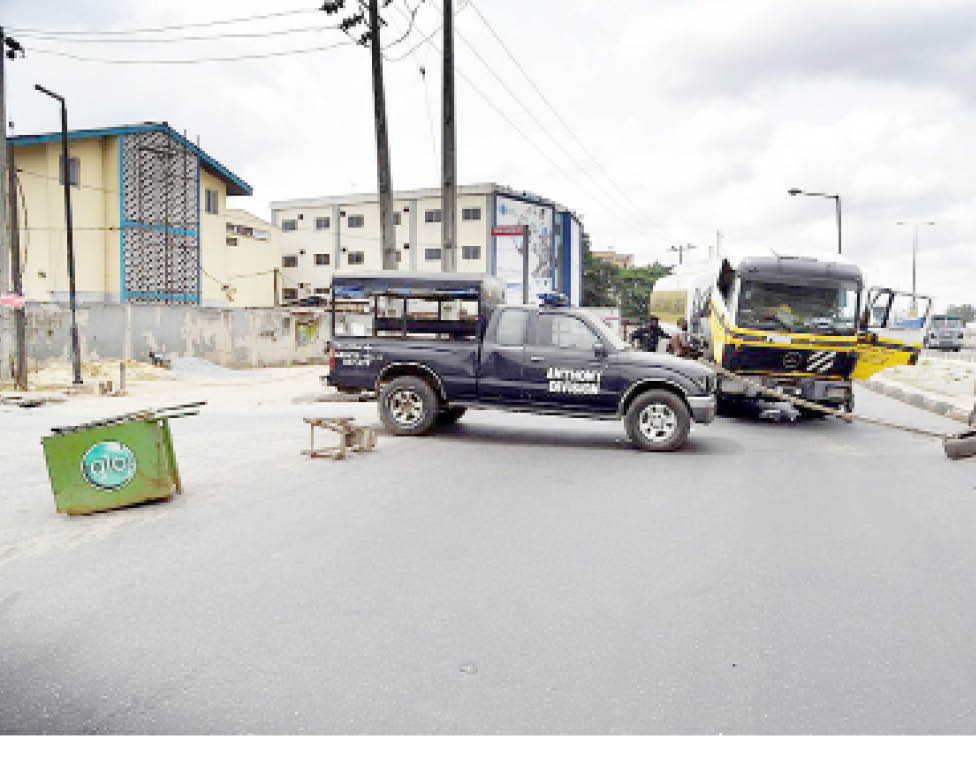It goes without saying that Abuja, being the capital city of our dear nation Nigeria, is important. So I will be the last person to complain about security being too much. In fact, I would even say it needs to be more. Checkpoints, those incredibly useful security constructs, have helped – and continue to help – to either thwart criminals, or even proactively tackle crime. The police, saddled with most of internal security, at least in the ideal situation, man most of the checkpoints in Abuja metropolis, as well as surrounding areas. Sure, the army picks up the slack in some places, but the ‘boys in blue’ are supposed to be the main custodians. They are, and boy do they mess things up in a lot of cases.
For starters, take for instance one of the checkpoints in Wuse II, particularly the one leading from Zone 4 to Wuse II, just before the bridge. The conduct of the officers there, from my experience, is abysmal. Anyone who plies that road after 9pm – their ‘resumption time’ – will echo what I’m saying. I won’t go into details, but what I can say is that it sometimes is extremely unprofessional. Still in Wuse II, just beside AP plaza, the story is the same. I would like to suggest to the higher-ups to monitor all the checkpoints in Wuse II to see firsthand what I mean. But the checkpoint horror stories don’t end there.
- Atletico the biggest losers as Real Madrid, Barcelona collide in El Clasico
- I am a female comedian that performs based on current issues – Zee Pretty
Probably the worst of them all is the checkpoint after the traffic lights at the popular Banex Junction, which is manned by cops from the Counter Terrorism Unit (CTU), no less. Barking at commuters and intimidating innocent citizens every night, they cut a picture of a poorly-trained and badly-behaved set of individuals who seem to miss the point that they’re supposed to protect and serve citizens. The same CTU is also responsible for the personnel manning a checkpoint near the Nigerian Army Farms and Ranch Ltd. (NAFARLS), where all kinds of things unfold. Anyone plying that road can see for themselves. I’ll also request the ‘higher-ups’ to do the same, with a view to fixing things.
Forget Abuja for a minute, even. Look around Nigeria, and the many checkpoints – roadblocks, really – on highways across the country by numerous security agencies, are generally seen as reasons for loss of time, or even increased prices of consumer goods and services. As is the case with our security organisations, they always push back swiftly, with well-oiled PR machines denying allegations or issuing veiled threats. Don’t forget the fact that while many checkpoints might be legal, many are not. That is made clear by the way and manner in which the personnel mounting it carry out their activities.
Now, this isn’t a police-bashing piece. It’s also not meant to disparage VIOs and FRSC personnel. It’s a general critique of checkpoints and how we do them in this part of the world. Which means we will have to look at others’, like the Federal Road Safety Corps’ (FRSC) and that of VIOs’. Again, I will not say too much, just to suggest closer monitoring of the checkpoints – snap checkpoints, really – for some really shocking revelations. This is because this isn’t a piece meant to disparage anyone or any organisation. But can someone do something about the ridiculous lack of quality of our checkpoints, generally?
Checkpoints aren’t recent, as far as innovations go. There are set standards for the various types that exist, and all we need to do is to adhere to them. They are quite helpful in fighting crime, and so we cannot wish them away. But we owe it to ourselves to get them right. They, , like most things, have the capacity for great good, but if handled badly, can be the source of a lot of very bad things. Maybe focusing on the ones in Abuja will help us, as best practices spread nationwide.
I have no interest in highlighting the bad, but the personnel at checkpoints in Abuja make that inevitable. But all hope is not lost: I am hoping that somehow, someone, somewhere – who can do something about our checkpoints – will do something about them. That someone, somewhere, somehow, is checking our checkpoints, and the people that man them. It might make all the difference in our safety – and public perception about our security personnel, which is something we’ve been sorely lacking for a long time now. Isn’t it time we did things differently?

 Join Daily Trust WhatsApp Community For Quick Access To News and Happenings Around You.
Join Daily Trust WhatsApp Community For Quick Access To News and Happenings Around You.


